With the technology age turning our daily functions into simple taps on multi-device platforms, marketing has quickly taken turns to create ingenious ways of attracting audiences and converting them into customers. Buying targeted keywords with commercial intent can easily lead searchers into your sales funnel. You do not always have to spend a fortune on targeted keywords- you can buy cheap traffic that converts. In this article, we are going to discuss how to buy targeted website visitors, the best websites to buy traffic and targeted website traffic service.
Understanding the user’s search intent
Understanding what a user is searching for when they use a search engine is key to buying the keywords that will lead to higher conversion rates. When a person uses Google or any other search engine they are looking for topical information, seeking information on a specific business service, or looking for something to purchase. These three form the types of user search intent:
- Informational: When a user is seeking general information or information on a certain topic.
- Navigational: When a user is seeking information on a specific business or brand and its services.
- Transactional: The user is searching for a product to purchase.
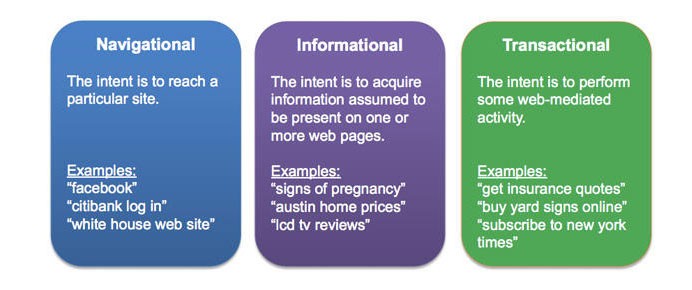
(Image credit: WordStream)
Making sure that your types of keywords and content match with the specific intents of your target audience will undoubtedly lead the right audience into your web pages and they will inherently be more interested in the content on your pages.
Aligning content with the buyer’s journey
Providing users with valuable content has become the standard of marketing on the internet. However, if you only consider the awareness and discovery stage of the buyer’s journey, you are missing out on capturing the attention of the right crowd that will make their way through your sales funnel.
You cannot afford to leave any stone unturned, so we’ll help you align your content and keywords to the buyer’s journey and get your target audience closer to making a purchase on your website. What’s more, if you follow this guide, and your product or service is of high quality, they will likely come back for more.
At each stage of the buyer’s journey, there are specific keywords you can use to optimize your web pages so that the right audience finds their way to it. To better capture attention of your probable customers at each stage of the buyer process, you will need to know:
- The information your target user is seeking at each stage
- The type of content that would work best at each stage
- The questions your target audience is asking at each stage
- The terms that will be best to lead your target audience to your web page
Here are the different stages of the buyer process:
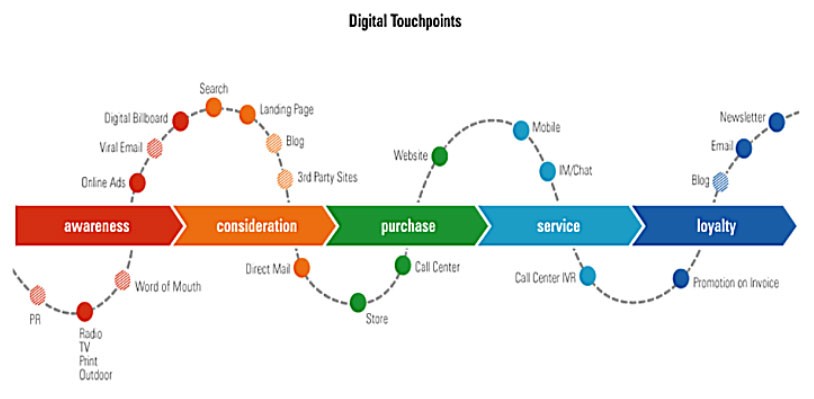
Awareness and Discovery Stage
The awareness stage is the time your user is farthest from making a purchase on your page. The user does not know much about what you are offering. Most searchers in this stage of their journey have informational intent. They are often looking to find:
- Resources and information on the topic
- Researching topics
- Solutions to problems they have just found out
- Opinion, advice, options and insight
- Casually browsing the internet
- Not seeking to find a specific solution
To efficiently capture the attention of users at this stage, it is advisable to use engaging and highly informational content that is relevant to your industry. Consider creating educational content that provides guidelines to your audiences. You should also create content with the potential to “go viral” to increase the potential of increasing your website’s exposure.
Test your SEO in 60 seconds!
Diib is one of the best SEO tools in the world. Diib uses the power of big data to help you quickly and easily increase your traffic and rankings. We’ll even let you know if you already deserve to rank higher for certain keywords.
- Easy-to-use automated SEO tool
- Keyword and backlink monitoring + ideas
- Speed, security, + Core Vitals tracking
- Intelligently suggests ideas to improve SEO
- Over 500,000k global members
- Built-in benchmarking and competitor analysis
Used by over 500k companies and organizations:
Syncs with 
In the awareness and discovery stage content formats usually include:
- Infographics
- Blog posts
- Videos
- Checklists
- Buyer’s guide
- Interactive content
Think along the triggers that would most likely cause your target audience to consider reading through your pages’ content. To cover the most lucrative triggers for your site, you have to consider the questions your audience will likely be asking.
- How to…?
- How does… work?
- What do I do when … happens?
- How do I find…?
- How can I accomplish…?
- What are the advantages of…?
- How can I make… easier/better?
Make sure your content is designed to answer these questions with regards to your industry/ field. Now that we have gone over what your target audience could be searching for on the internet, let’s identify some of the best buying keywords that will increase the audience looking at your content and hence the conversion rates.
The key to using your commercial keywords
You Might Also Like
While commercial keywords are typically found at the bottom of the marketing funnel, allowing them to influence your content will make the other phases of the purchasing process much easier for the user, which is a win for you.
Create a sales funnel in your content creation process to map out the entire buying journey of your ideal customer. Use the keywords that are most likely to fit their search intent in each phase. By keeping commercial keywords in mind in the whole content creation process, your website is more likely to contain the right guideline to your target audience at the right time, which will get more customers to reach the purchase stage. A keyword planner might be a good idea at this point. Here is what that might look like:
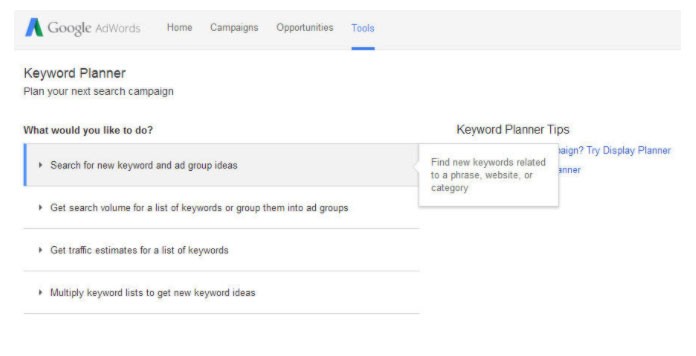
(Image credit: WordStream)
Consideration stage
In this stage of the buyer’s journey, audiences have already gotten some information about the product or service you are marketing. Searchers often have a navigational intent at this stage and may be looking for information on a particular brand’s service or product. At this time, the searcher:
- Has an idea about how their ideal service or product should look or feel
- Is carrying out deeper research
- Is deciding which of a few products or services is right for them
The audience at the consideration stage is looking for information that will deepen their knowledge, and are seeking detailed and in-depth content such as:
- Landing pages
- Product demos
- Case studies
- Product and service lists
- Data sheets
- Samples and examples
- Webinars
- Whitepapers
- E-books
As users search for content that can further their knowledge on a specific niche, you should help them answer questions such as:
- Why is … easier/ better than …?
- Which product or service can assist me in …?
- How do … features benefit me?
- Which features do … have?
- Is … the right choice for me?
- How does … make life easier?
As you search for the best keywords to buy and put to use in the consideration phase, try to tie in relevant keywords with your content. Make sure the keywords answer the specific questions that your audience likely has.
FACT: “Salesforce.com estimates that consumers are 75% of the way to making their decision to buy your brand BEFORE they ever visit your store or see a sales rep.” (Market Maven)
How to find the right keywords in the consideration stage
Keyword research in the consideration stage is no different from keyword research in the awareness and discovery stage. However, in the consideration phase, keywords that are being used by your competitors become more of an issue. Investigate the keywords that your competitors are using to promote their offerings, products, content, and services that are comparable to yours.
There are tons of tools in the market that you can use to take a good look at the terms your competitors are using to promote their products or services. That allows you to drive the traffic they are enjoying at their site to yours.
As you find a way to optimize your content for the consideration stage, look to find terms that are tied to the service or products that are popular, offer your product the ability to compete with your competitors, and have low competition.
The Purchase and Conversion Stage
The conversion and purchase phase is the final stage of the marketing funnel. It is the moment you and all the other sellers have been waiting for. The audience has gone through all the necessary research and is ready to purchase a service or product.
At the conversion and purchase stage, the searchers usually have transaction intent and are:
- Looking for the best firm/ brand to use
- Looking for the best product or service
- Figuring out how to become a customer
More direct content is preferred in this stage of the buyer’s journey. Try to provide the exact details required by your audience to become a customer. You may also want to provide supporting information to answer any questions that could be holding back your customer from making a purchase.
At this stage of the buying process, your audience is probably asking the following questions to help them search for the best product, brand, or service:
- Where do I find a business that does …?
- What are the opinions of customers about …?
- Who has the best …?
- How much does … cost?
- Where can I buy …?
It would be wise to create copy and pages that try to answer most of these questions as you create and design content at the purchase and conversion stage of the buyer’s journey. Also remember to use the commercial keywords that are relevant to your niche and show transactional intent.
Keyword research for the conversion and purchase page
There are tons of tools available in the market that give you the ability to identify the best commercial keywords for the conversion stage in your niche. They also help you identify those that are in use by competing firms. Consider all the commercial intent keywords and implement them on your website. That way, searchers that use the phrases to look for a product or service to purchase will be directed to your page.
Examples of commercial intent keywords:
- Buy the best yoga pants in [CITY]
- Customer review of … yoga pants
- How to find the best yoga pants in your local town
If you have chosen this type of content, the keywords above could be incorporated in your content. The idea is to allow your brand to exploit the demand for your service or product at the front line. That way, your audience is ready to click on “buy” after going through the entire buying process on your website. This is an example of high commercial intent keywords:

(Image credit: Main Street Host)
Best websites to buy traffic
There are a bunch of awesome sources of internet traffic that can help you improve your conversion rates. However, you do not have to spend a lot on good internet traffic. There are plenty of sources from which you can buy cheap traffic that converts.
Most traffic sources claim to offer the highest conversion rates and quality green traffic. However, most of them do not match up to their promises. To find a professional source of targeted traffic, you will need to wade through the horde of fake traffic sources, annoying or useless banner ads, and low conversion rates.
As discussed above, you should seek to find your target audience by the sales funnel stage they are on. While it is still a controversial subject online, buying traffic is virtually the best way of getting new customers to your page. However, you should try your best to avoid bot traffic, a common feature in the web, since it has no value to you.
FACT: Nowadays, almost 56% of bot traffic is used for the malicious purposes that we encounter on the Internet websites. (Voluum)
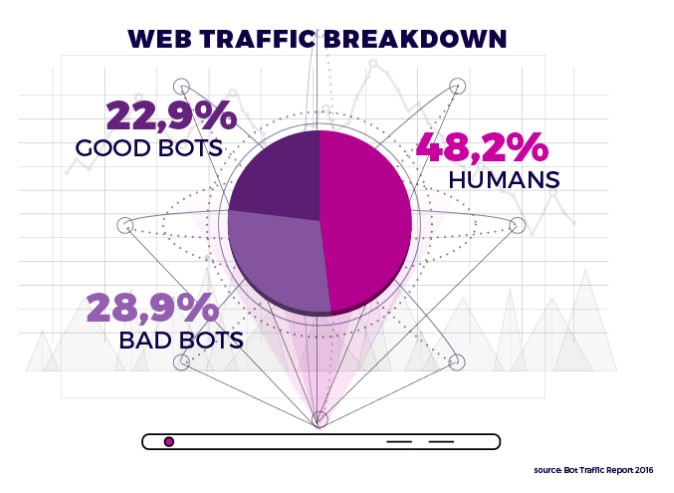
(Image credit: Voluum)
I cannot think of three reasons you should not buy traffic. If your business is experiencing fulfillment problems, and you have no way to convert your website traffic into conversion rates, then you should not buy traffic. That being said, in almost any other instance, you should buy traffic to increase your site’s conversion rates.
Since it all comes down to converting customers to money, why not spend a little money to make more money? You always do it in your daily business routine. To be able to get the right targeted website traffic service, you will need to answer a couple of essential questions.
Can you convert purchased traffic?
The first prerequisite to buying traffic and to actually operate a website at all, is your ability to convert that traffic into money. You want to be able to convince almost every visitor of your website to purchase a product or service on your site.
At the minimum, you should be able to convince your visitors to join your mailing list or enroll in a way to keep up with new updates on the website. An RSS subscription, the best site to buy traffic, can be just fine, and with just a daily readership, your site will be good to go.
Above a subscription, you want to interest your readers in learning more on your product or service, your business, and your industry. That is where regular updates of your content comes in. Essentially, the trick to effectively buying traffic is getting as much as you can from it. Otherwise, it will be just a waste of your money. If you find that your conversion rate is considerably high, you can reinvest the proceeds to increase traffic flow even further and cycle up again till they start to taper off.
FACT: Companies spend 46% of their budget on content creation. (HubSpot)
We hope that you found this article useful.
If you want to know more interesting about your site health, get personal recommendations and alerts, scan your website by Diib. It only takes 60 seconds.
Who to buy targeted website visitors from
The next step is to figure out who you want to buy high converting traffic from. There are a handful of different methods each with each merits and demerits.
High on most traffic buyer’s pecking orders, are the big name ad networks. These include the likes of Facebook ads and Google AdWords. They are connected to billions of users around the globe and provide you with incredible control over analytics and targeting of your marketing campaigns. On the other hand, big name ad networks are also very competitive and complex. Your competitors are likely using them, as are millions of other marketers at any given time. Here are some statistics to consider:
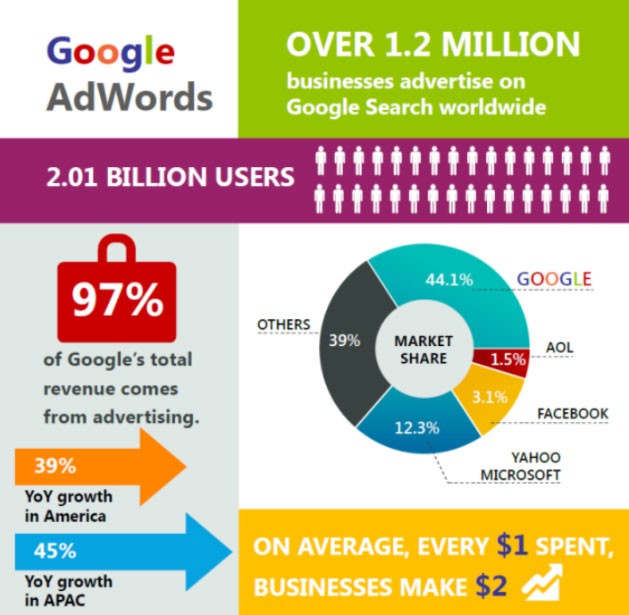
(Image credit: StoreYaBlog)
Below the big name ad tier, is the third party ad networks. They include sites like Advertising.com, Clicksor, Infolinks, and more. While they are smaller than the big names, they still account for a large part of the traffic on the internet. They won’t offer you nearly as many fringe benefits, such as detailed analytics, and other factors. However, they will open your business up to sites that do not depend on big names, which accounts for a lot of otherwise unexploited traffic. It will be quite a hassle to implement them, but once they are set up, your website may have an advantage over the competition.
Below third party ad networks are traffic re-sellers that are among the best sites to buy traffic. They are firms that offer to sell you traffic instead of allowing you to run ads. These sites are often already running ads on their own networks, using their own techniques. It is equally as valid as running the ads yourself, and it can offer you equal if not better results.
At the lower end, we have bot traffic sellers. Bot traffic is essentially traffic from software and is terrible for your site as it cannot be converted into sales. You are simply paying a person to use software to consistently send fake signals on your website. There is no way the programs can purchase any products or services from your website. Bot traffic is not only a sheer loss for you but can also get your site blocked for using a program for running display ads, which will cost you even more money. If you are looking to buy high converting traffic, bot traffic sellers are not the ideal place to look.
The quality of your traffic is much more important to your site’s conversion rate than the sources of your traffic. However, the only importance of knowing where your traffic is coming from is that it helps you better understand how to get more traffic.
Diib®: Get Targeted Traffic that Converts!
With so much variance in traffic sources and quality, don’t throw your money away without first investigating how best to increase your traffic. The Diib® analytical software can give you key metrics that can help you learn more about where your traffic is coming from and exactly how the conversion process works for you. We have helped thousands of companies improve their conversions through the right kind of traffic. Here are some of the features that can help:
- Customized Objectives give you simple tasks designed to optimize your website
- Alerts that tell you about your Domain Authority other technical SEO issues
- Bounce rate monitoring
- Post performance
- Broken pages where you have backlinks (404 checker)
- Keyword, backlink, and indexing monitoring and tracking tools
- User experience and mobile speed optimization
Click here for your free scan or simply call 800-303-3510 to speak to one of our growth experts.
FAQ’s
If you’re getting traffic but no sales, your store’s navigation could be one of the reasons why your visitors aren’t converting. Make sure they’re finding the resources or information they seek within the first few seconds on your page.
Often with an online store, like Shopify, the images you use aren’t a high enough quality for buyers to see the total picture. Media, including videos, is the only interaction your buyers will have, make it work to your advantage. Encouraging reviews is also a great way to build trust.
The average conversion rate across Google Ads is 4.40% on the search network and 0.57% on the display network.
Across industries, the average landing page conversion rate was 2.35%, yet the top 25% are converting at 5.31% or higher. Ideally, you want to break into the top 10% as these are the landing pages with conversion rates of 11.45% or higher.
This amount can vary widely depending on the client, industry, objective and targeted locations. Growth experts recommend starting out your budget with $1,000 to $10,000 per month.
The conversion rate is the number of conversions divided by the total number of visitors. For example, if an ecommerce site receives 200 visitors in a month and has 50 sales, the conversion rate would be 50 divided by 200, or 25%. A conversion can refer to any desired action that you want the user to take.
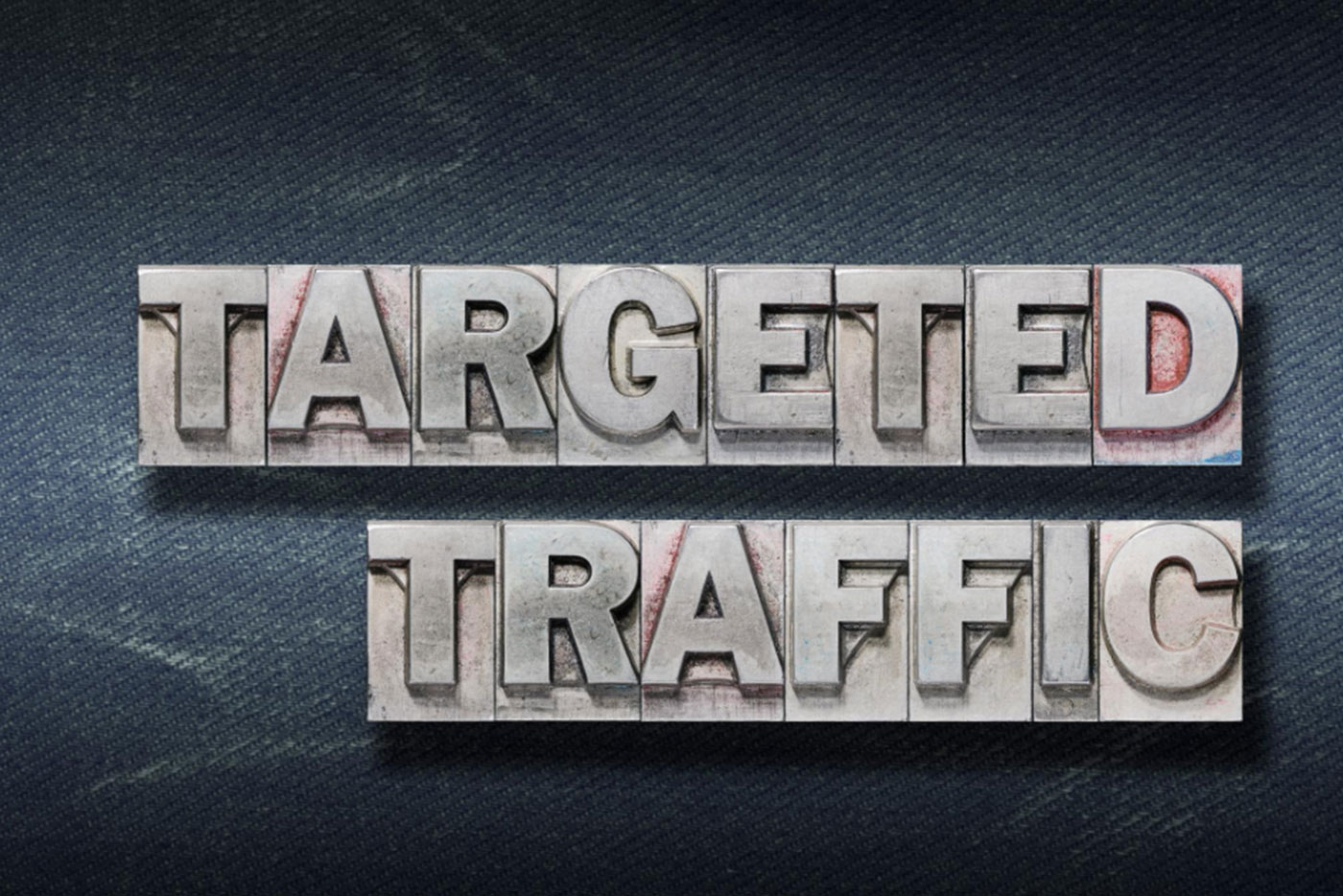



sreya says:
i enjoyed this site